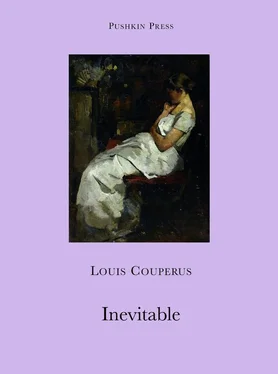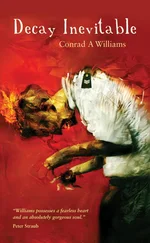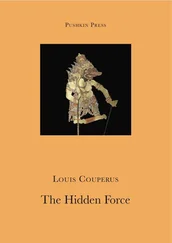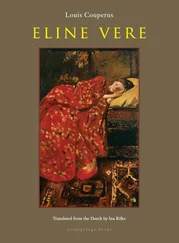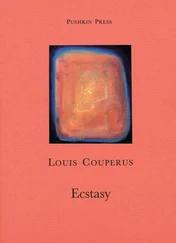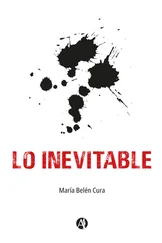When he saw that his watercolours nevertheless interested her, he went on talking about himself, telling her how he first enthused about the noble and naive Primitives, Giotto and especially Lippo Memmi … How subsequently, spending a year in Paris, he had found that nothing compared with Forain: dry, cool satire in two or three lines; how then, in the Louvre, Rubens had revealed himself: Rubens, whose unique talent and unique brush he had traced among all the imitation and apprentice work of his numerous pupils, until he was able to say which cherub was by Rubens himself in a sky full of cherubs painted by four or five pupils.
And then, he said, he did not think about painting for weeks, and did not pick up a paintbrush, and went to the Vatican every day and was totally absorbed by the noble marbles.
Once he had spent a whole morning sitting dreaming in front of Eros , once he had dreamed up a poem accompanied by a very faint monotonous melody, like a devout incantation: at home he had wanted to put down the poem and the music on paper, but had not been able. He could no longer stand Forain, found Rubens disgusting and coarse, and had remained loyal to the Primitives.
“And suppose I painted a lot and sent a lot to exhibitions? Would I be happier? Would I feel satisfaction at having done something? I don’t think so. Sometimes I finish a watercolour, sell it, and I can survive for a month without troubling mama. I don’t care about money. Ambition is totally alien to me! But don’t let’s talk about me. Are you still thinking about the future and … bread?”
“Perhaps,” she replied, smiling sadly, and around her the studio darkened, the silhouettes of his mother and sisters faded, as they sat quietly and languidly uninterested in easy chairs, and all colour dissolved silently into shadow. “But I am so weak. You say you are no artist, and I, I am no apostle.”
“Giving direction to one’s life is the difficult thing. Every life has a line, a direction, a way, a path: it is along that line that life must flow into death and what comes after death; and that line is difficult to find. I shan’t find my line.”
“I can’t see my line before me either …”
“Do you know, a restlessness has come over me. Mama, do you hear, a restlessness has come over me. In the past I used to dream in the Forum, I was happy and didn’t think about my line. Mama, do you think about your line, and do my sisters think about theirs?”
His sisters, in the dark, sunk in the deep chairs like cats, giggled a little. Mama got up.
“My dear Duco, you know, I can’t follow you. I admire Cornélie for being able to appreciate your watercolours and for understanding what you mean by that line. My line is the way home now, as it’s getting very late …”
“That is the line of the next moment. But I feel restlessness about my line of the days and weeks afterwards. I’m not living the right way. The Past is very beautiful, and so peaceful because it’s over. But I have lost that calm. The Present is really very small. But the Future … Oh, if only we could find a goal! For the Future …”
They were no longer listening to him; they groped their way down the dark stairs. “Bread?” he wondered.
ONE MORNING when she stayed home, Cornélie reviewed the reading matter that was scattered about her room. And she decided that it was useless for her to read Ovid in order to study a few Roman customs, some of which had alarmed and shocked her; she decided that Dante and Petrarch were too difficult for studying Italian, when it was enough to pick up a few words to make oneself understood in a shop or with the serving staff; she decided Hare’s Walks was too exhausting as a guidebook, since every last stone in Rome did not excite the same interest in her as it had obviously done in Hare. Then she admitted to herself that she would never be able to see Rome the way Duco van der Staal saw it. She never saw the light in the skies and the scudding of clouds as he had in his unfinished watercolour studies. She never saw the ruins glorified as he did in his hours spent dreaming in the Forum and on the Palatine. She saw a painting only with the eyes of a layman; a Byzantine Madonna meant nothing to her. She did like sculpture; passionate love for a lump of mutilated marble such as he felt for the Eros seemed pathological to her, she thought at the time, but “morbid”—though the word made her smile — expressed her view better. Not pathological, but morbid. And she considered an olive a tree that resembled a willow, though Duco had told her that an olive was the loveliest tree in the world.
She did not agree with him, either about the olive or about Eros and yet she felt that from some mysterious perspective that was inaccessible to her, he was right, since it was like a mystical hill amid unbridgeable mystical circles, which he passed through as emotional spheres that were not hers, just as the hill was an unknown throne of feeling and perspective. She disagreed with him and yet she was convinced that he was right in a superior way, had a superior vision, a nobler insight, a deeper feeling; and she was certain that her way of seeing Italy — in the disappointment of her dream — was not noble or good, that the beauty of Italy was escaping her; while for him it was like a tangible and embraceable vision. And she cleared away Ovid, Petrarch and Hare’s guidebook, and locked them in her case and took out the novels and pamphlets that had appeared that year on the Women’s Movement in Holland. She was interested in the issue and it made her feel more modern than Duco, who suddenly appeared to her as if belonging to a past era. Not modern. Not modern. She repeated the word with relish and suddenly felt stronger. Being modern would be her strength. One remark of Duco’s had made a deep impression: that exclamation “Oh, if only we could find a goal! Our life has a line, a path that you must travel …” Being modern, wasn’t that a line? Finding a solution to a modern question, was that not a goal? He, he was right, from his point of view, from which he viewed Italy, but was not the whole of Italy a past, a dream, at least the Italy that Duco saw, a dream paradise of nothing but art. It could not be good to stand and see and dream like that. The Present was there: on the grey horizons there was the rumble of an approaching storm and the modern questions flashed like lightning. Was it not that that she must live for? She felt for Women and Girls: she herself had been a Girl, brought up with nothing but a drawing-room education, in order to shine, beautifully and charmingly, and then to marry. And she had been beautiful, and charming, she had shone and had married, and now she was twenty-three, divorced from that husband, who had once been her only goal: now she was alone, lost, in despair and mortal desolation: she had nothing to cling to, she was suffering. She still loved him, blackguard, wretch that he was; and she had thought she was being very strong by setting off on a trip, for the sake of art, to Italy. Oh, how clearly she saw, after those conversations with Duco, that she would never understand art, though she had drawn a little in the past, although she had once had an unglazed terracotta group after Canova in her bedroom: Amor and Psyche , so sweet for a young girl. And how certain she was now that she would not understand Italy, since she did not find an olive tree that beautiful, and had never seen the sky of the Campagna as a fanned phoenix’s wing. No, Italy would never be her life’s consolation …
But what then? She had been through a lot, but she was alive and very young. And again at the sight of those pamphlets, that novel, the longing reawakened in her heart: to be modern, to be modern! To tackle modern problems. To live for the Future! To live for Women, for Girls …
Читать дальше
